Explore the pages of history as we delve into the presence of British troops in Boston during a crucial period that shaped the course of nations.
The late 18th century marked a tumultuous time, with tensions escalating between the American colonies and their British rulers. Against the backdrop of revolutionary fervor, Boston became a focal point where British troops played a significant role.
From the Boston Massacre to the Siege of Boston, these events laid the groundwork for the American Revolution.
This exploration will unravel the dynamics, conflicts, and consequences that unfolded as British troops navigated the challenging terrain of colonial dissent.
Witness the birth pangs of a new nation as we dissect the ramifications of events that transpired in the narrow alleys and open squares of Boston.
Join us on a journey through time to understand the complexities of this chapter, ultimately contributing to the birth of a new nation.
British Troops in Boston
The presence of British troops in Boston during the late 18th century marked a critical juncture in the lead-up to the American Revolution.
The events that unfolded in this bustling colonial city played a pivotal role in shaping the course of history, ultimately contributing to the birth of a new nation.
As discontent reached a boiling point, Boston emerged as a focal point for resistance and dissent. Here’s what happened during this era:
Prelude to Tensions
The simmering discontent between the American colonies and British rulers set the stage for conflict, fueled by issues such as taxation without representation and a growing desire for self-governance.
Boston Massacre (1770)
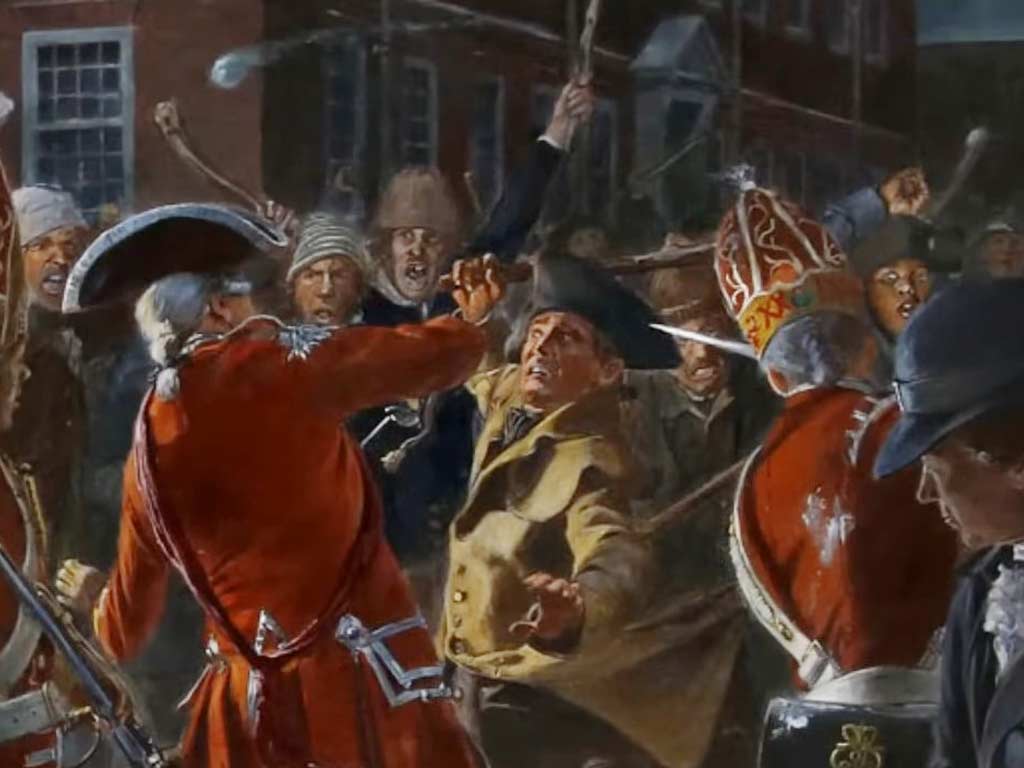
Tensions erupted into violence when British soldiers clashed with a colonial mob, resulting in the tragic Boston Massacre. This event became a rallying cry for anti-British sentiment and intensified the growing divide between the colonies and the Crown.
Boston Tea Party (1773)
Colonists, protesting the Tea Act and unjust taxation, staged the Boston Tea Party in 1773. Disguised as Mohawk Indians, they dumped tea into Boston Harbor, further straining relations and escalating resistance against British rule.
Coercive Acts and Increased Military Presence (1774)
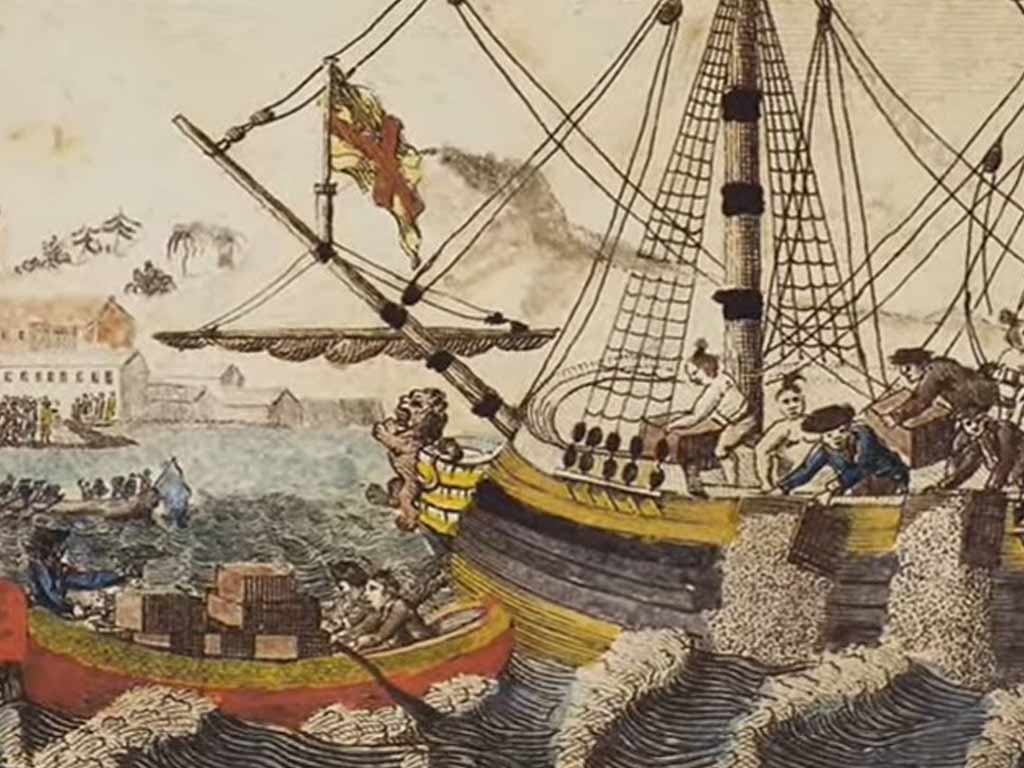
The British response to the Boston Tea Party included the Coercive Acts, which closed Boston Harbor and increased the military presence in the city. These measures aimed to punish Boston and reassert British authority but instead deepened colonial resentment.
Outbreak of War
The first shots of the American Revolution were fired at the battles of Lexington and Concord in 1775, as tensions escalated. Boston found itself under siege by colonial forces, marking a crucial turning point in the conflict.
Siege of Boston (1775-1776)
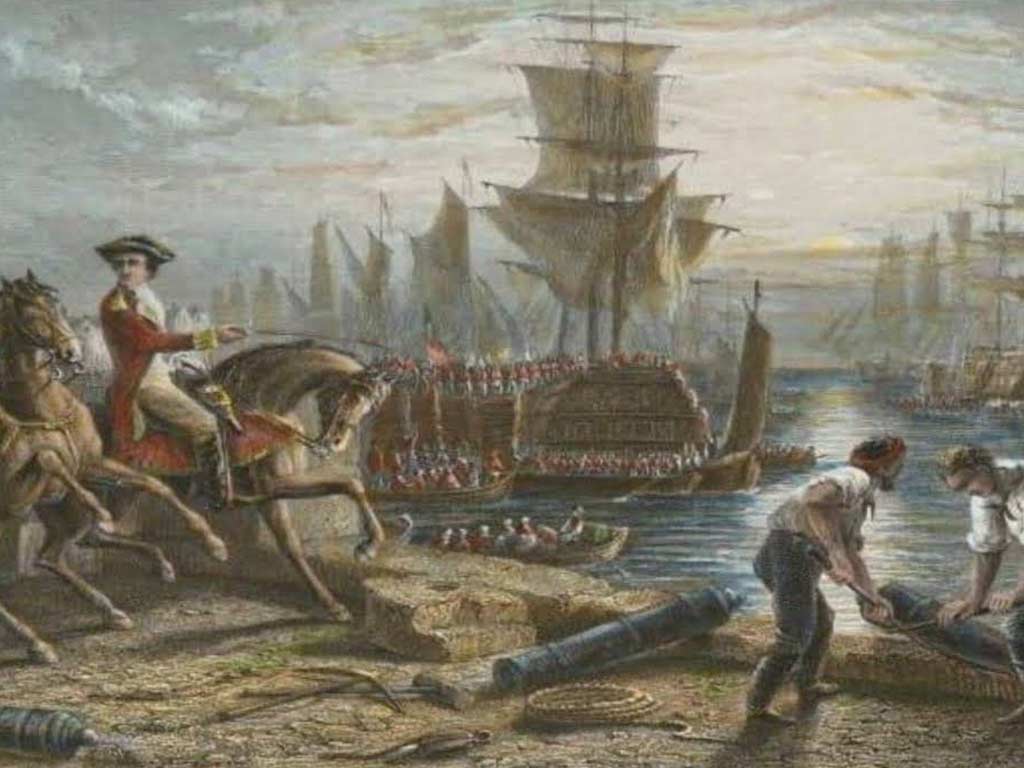
The Siege of Boston witnessed notable events, including the Battle of Bunker Hill. Despite being a technical British victory, this battle showcased the colonists’ ability to stand against a formidable military force.
Evacuation and Victory (1776)

In March 1776, realizing the untenable situation, British forces evacuated Boston. The city’s resilience and defiance marked a significant victory for the American cause, setting the stage for broader independence.
Legacy and Impact
The legacy of British troops in Boston resonates throughout history, catalyzing the Declaration of Independence and the establishment of the United States.
The principles of liberty, self-governance, and rejection of unjust authority continue to shape the nation’s identity.
What Happened to the British Soldiers That Were Tried in Boston?
Following the Boston Massacre of 1770, tensions in the city were palpable. The incident, where British soldiers clashed with a colonial mob, resulted in several deaths and fueled anti-British sentiment.
In the aftermath, legal proceedings were initiated against the soldiers involved, marking a critical moment in the lead-up to the American Revolution. Here are more details:
Legal Landscape
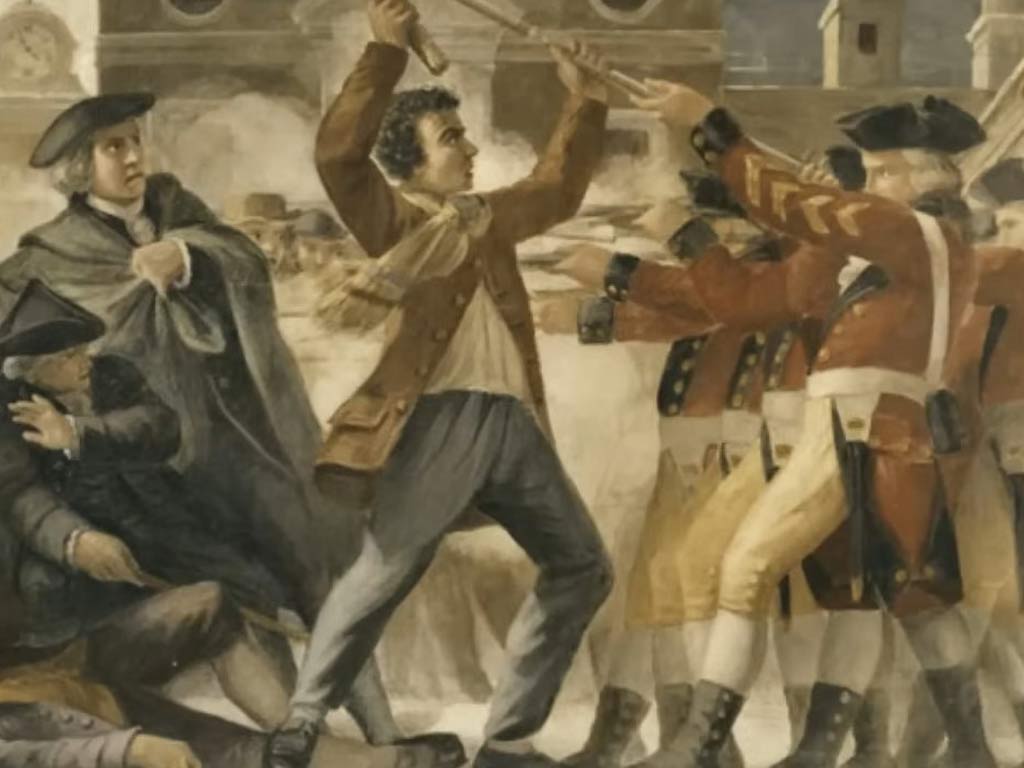
The trials began on November 27, 1770, and were conducted in a highly charged atmosphere. The defense was led by prominent lawyers including John Adams and Josiah Quincy, who would later become key figures in American history.
Verdicts and Sentences
The trials resulted in acquittals for six soldiers, while two were found guilty of the lesser charge of manslaughter. The severity of the sentences reflected the delicate balance between delivering justice and appeasing the colonial population.
Those found guilty faced branding on the thumb—a punitive measure rather than a fatal one.
John Adams’ Role
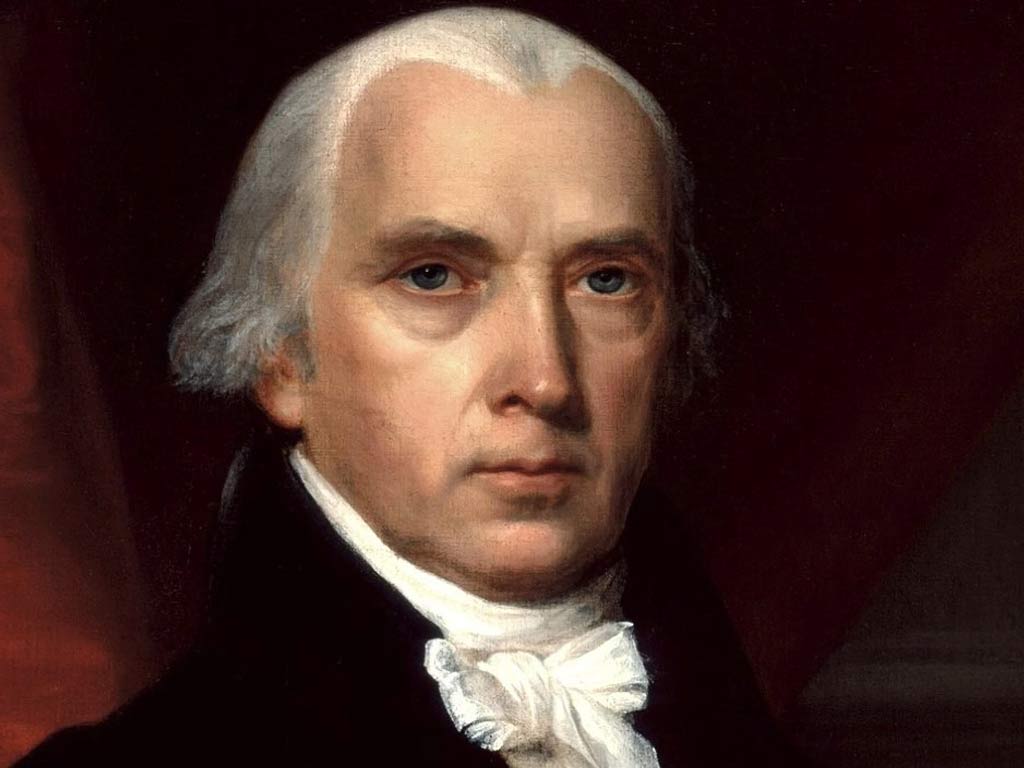
John Adams, a future President of the United States, took on the unpopular task of defending the British soldiers. His commitment to justice and the principles of a fair trial were evident as he argued that the soldiers were acting in self-defense, facing an agitated mob.
Impact on Public Opinion
The verdicts had a profound impact on public opinion. While some saw the legal proceedings as a demonstration of the rule of law, others viewed the outcomes as unjust and evidence of British oppression. The events further fueled anti-British sentiment in the colonies.
Escalation of Tensions
Far from quelling the unrest, the trials heightened tensions between the American colonies and Britain. The perception that British soldiers were immune to accountability fueled the narrative of tyranny and contributed to the growing desire for independence.
The Role of Propaganda
The Boston Massacre Trials were not just legal proceedings; they were a battleground of ideas. Both patriot and loyalist factions used the trials to advance their narratives.
Paul Revere’s famous engraving, depicting a biased interpretation of the events, became a powerful piece of anti-British propaganda.
Legal Precedent and Constitutional Impact
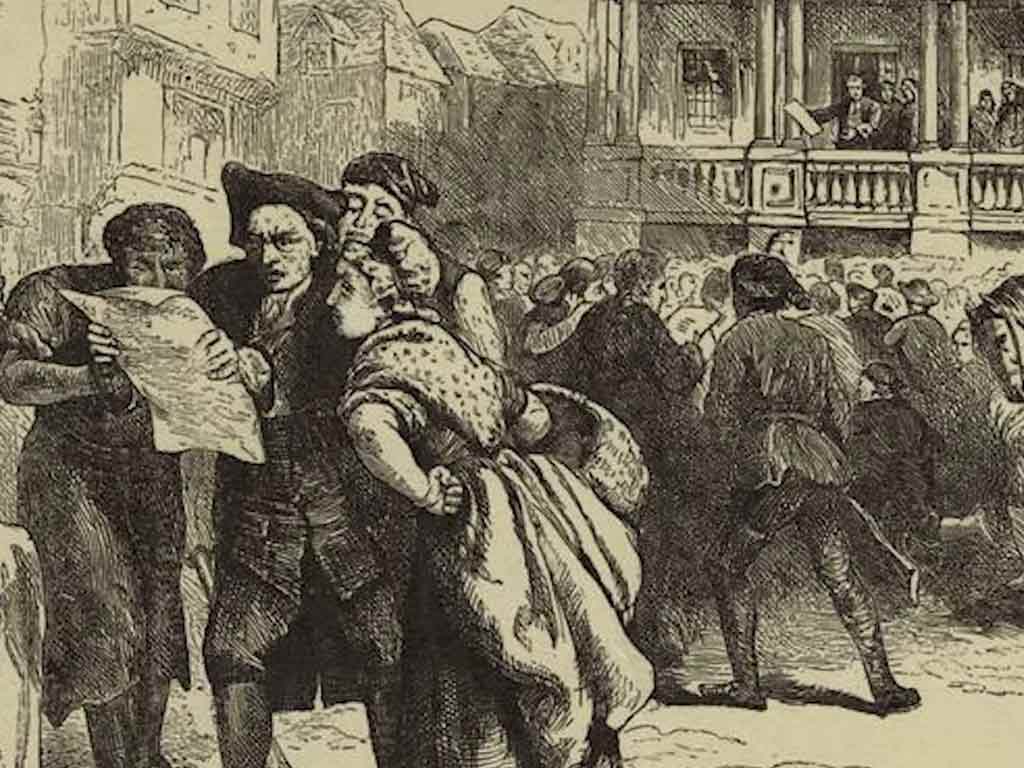
The trials established a crucial legal precedent. They underscored the importance of due process and the right to a fair trial, principles that would later be enshrined in the United States Constitution.
The events in the courtroom contributed to the evolving understanding of individual rights and the limits of governmental authority.
Long-Term Repercussions
The acquittals and the subsequent dynamics fueled a sense of injustice among the colonists, contributing to a broader discontent that would lead to the American Revolution.
The trials catalyzed revolutionary fervor, shaping the course of history in ways that extended far beyond the courtroom.
Aftermath for the Soldiers
The soldiers involved in the Boston Massacre Trials faced challenges upon returning to their units. The stigma of being part of a controversial incident lingered, and some struggled to reintegrate into the military community.
Perspectives on the Trials
The Boston Massacre Trials remain a subject of historical debate. Some view them as a testament to the rule of law prevailing even in times of tension, while others see them as a symbol of the injustices that fueled the revolution.
Historical Legacy
The trials left an enduring legacy. They highlighted the complex interplay of law, public opinion, and political dynamics during a critical period in American history.
The Boston Massacre Trials serve as a vivid chapter in the narrative of colonial resistance, contributing to the broader story of the quest for justice and liberty that defined the birth of the United States.
Who Was Killed by British Soldiers in the Boston Massacre?
The Boston Massacre unfolded in the heart of colonial Boston on the evening of March 5, 1770. As tensions between the American colonists and British soldiers escalated, a confrontation erupted near the Customs House.
In the chaos that ensued, British soldiers opened fire on the colonists, resulting in the tragic loss of five lives.
Crispus Attucks
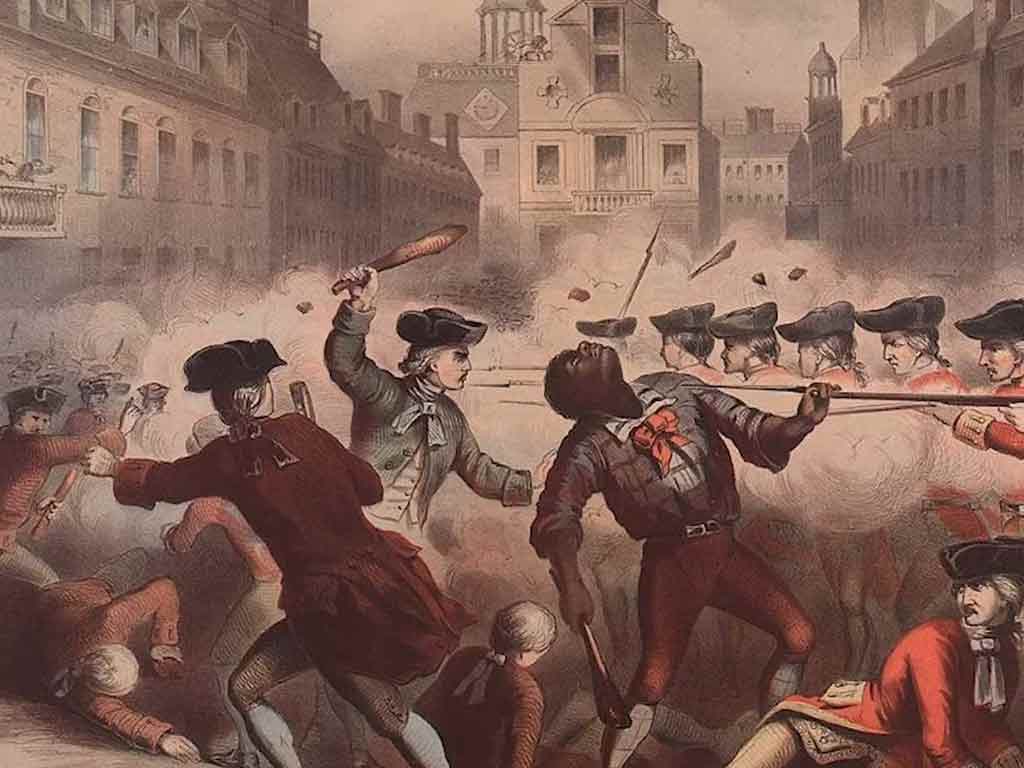
Crispus Attucks, of Wampanoag and African descent, was a prominent figure during the incident. As the first to fall, he became a symbol of resistance.
Attucks’ background as a free Black man further emphasized the broader themes of liberty and equality that would come to define the American Revolution.
Samuel Gray
Samuel Gray, a rope maker, was among those killed that fateful night. Gray’s occupation highlighted the diversity of the victims, representing various trades and backgrounds within the colonial population.
James Caldwell

James Caldwell, a sailor, found himself caught in the crossfire. Sailors like Caldwell were an integral part of Boston’s maritime community, and his death resonated with those who relied on the sea for their livelihoods.
Samuel Maverick
Samuel Maverick, an apprentice to a local ivory-turner, also lost his life in the violence. His youth and occupation reflected the range of individuals affected by the clash between the colonists and British soldiers.
Patrick Carr
Patrick Carr, mortally wounded during the confrontation, succumbed to his injuries a few days later. His death served as a poignant reminder of the lingering impact of the Boston Massacre on the lives of those involved.
FAQs
Why were British troops in Boston during the 18th century?
British troops were stationed in Boston to enforce unpopular laws and maintain order in the American colonies. Tensions between the colonies and Britain, fueled by issues like taxation without representation, led to a military presence in key cities.
What led to the Boston Massacre in 1770?
The Boston Massacre resulted from escalating tensions between colonists and British soldiers. A confrontation near the Customs House turned violent, culminating in British soldiers opening fire on the colonists.
What were the outcomes of the Boston Massacre Trials?
The Boston Massacre Trials saw six soldiers acquitted and two found guilty of manslaughter. The verdicts, delivered in a highly charged atmosphere, had a profound impact on public opinion and contributed to the growing anti-British sentiment in the colonies.
How did the Boston Massacre impact the American Revolution?
The Boston Massacre intensified the animosity between the colonies and Britain. It became a symbol of British oppression, fueling the desire for independence. The incident, along with its legal aftermath, played a crucial role in galvanizing colonial resistance.
Who were the victims of the Boston Massacre?
The victims of the Boston Massacre were Crispus Attucks, Samuel Gray, James Caldwell, Samuel Maverick, and Patrick Carr.
Their deaths became powerful symbols of resistance, contributing to the anti-British sentiment that fueled the revolutionary spirit in the American colonies.
Conclusion
The presence of British troops in Boston during the late 18th century was a pivotal chapter in the story of American independence.
The clashes and conflicts that unfolded on the streets of Boston reverberated far beyond, igniting the flames of revolution that would reshape the world order.
The resilience and determination displayed by both sides left an indelible mark on history, illustrating the profound impact that individuals and events in Boston had on the birth of a new nation.
As we reflect on this period, it serves as a reminder of the sacrifices, struggles, and aspirations that laid the foundation for the principles of liberty and self-governance.
The legacy of British troops in Boston echoes through time, reminding us of the transformative power embedded in the pursuit of freedom and the enduring spirit of those who sought to shape their destinies.
Jaclyn Lowe